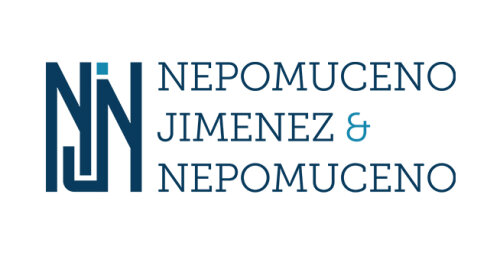Best Communications & Media Law Lawyers in Angeles City
Share your needs with us, get contacted by law firms.
Free. Takes 2 min.
List of the best lawyers in Angeles City, Philippines
About Communications & Media Law in Angeles City, Philippines
Communications & Media Law in Angeles City, Philippines, covers the regulation of broadcasting, telecommunications, and digital media. This area of law is crucial for governing how information is disseminated and consumed within the community, ensuring that communication channels operate fairly, transparently, and in adherence to both local and national regulations. The law addresses issues like censorship, intellectual property rights, consumer protection, and the responsibilities of media practitioners. It is designed to balance the competing interests of free expression, public order, and protection of individual rights.
Why You May Need a Lawyer
There are several scenarios where individuals or organizations might require legal assistance under Communications & Media Law in Angeles City:
- Intellectual Property Disputes: If you are facing issues such as copyright infringement or need assistance with licensing, a lawyer can help protect your rights and interests.
- Defamation Cases: Individuals or media organizations accused of defamation may need legal representation to navigate these complex cases.
- Broadcasting and Licensing Issues: If you're involved in broadcasting or run a media outlet, legal expertise is invaluable for compliance with licensing requirements and broadcasting regulations.
- Regulatory Compliance: Businesses in the communications sector need to ensure they meet all local regulations and standards, avoiding potential fines and legal issues.
- Contractual Arrangements: Legal advice can guide you through creating, enforcing, or disputing contracts related to media production, distribution, or consumption.
Local Laws Overview
Key aspects of local laws in Angeles City that are particularly relevant to Communications & Media Law include:
- Cybercrime Prevention Act (Republic Act No. 10175): Governs issues related to online content, privacy, and cybercrime, relevant for digital media practitioners.
- Intellectual Property Code (Republic Act No. 8293): Protects the rights of content creators and addresses issues of piracy and infringement.
- Data Privacy Act (Republic Act No. 10173): Ensures that organizations handling personal data adhere to privacy laws and protect consumer information.
- Broadcast Code of the Philippines: Applies to broadcasters and sets standards for content, aimed at protecting public morals and ensuring decency.
- Local Ordinances: Angeles City may have specific ordinances affecting media operations within its jurisdiction, emphasizing protection of community standards and public interest.
Frequently Asked Questions
What is Communications & Media Law?
This area of law deals with issues related to telecommunications, broadcasting, digital media, and the dissemination of information, ensuring content adheres to legal standards.
Who regulates communications and media in the Philippines?
The National Telecommunications Commission (NTC) primarily oversees the telecommunications sector, while the Movie and Television Review and Classification Board (MTRCB) regulates television and movie content. Local ordinances also play a role in regulation.
How do I file a complaint against a media organization?
You can file a complaint through the relevant regulatory body or seek legal advice for pursuing civil action if your rights have been infringed.
What are some common legal issues in media law?
Common issues include defamation, copyright infringement, privacy concerns, and regulatory compliance, among others.
What can be considered as defamation?
Defamation involves the publication of false statements that harm an individual's reputation. It must be proven that the statement was false, made with malice, and caused damage.
Can I use copyrighted materials for media production?
You must obtain permission or a license from the copyright owner unless your use qualifies under fair use exceptions, which are limited and often complex.
What role does the Data Privacy Act play in media law?
The Data Privacy Act protects personal information handled by organizations, ensuring privacy and security in handling data that's used in media and communications.
Are there special laws for online content?
Yes, the Cybercrime Prevention Act addresses issues related to online behavior, including libel, privacy breaches, and data protection.
How is broadcasting regulated in Angeles City?
Broadcasting is regulated by national laws administered by the NTC, but local ordinances may impose additional regulations related to community standards.
How can a lawyer help with media law issues?
A lawyer can provide advice on compliance, represent you in disputes, help safeguard intellectual property, and assist with contractual matters.
Additional Resources
For further assistance, the following resources may be helpful:
- National Telecommunications Commission (NTC): The principal regulatory body for telecom and broadcast services.
- Intellectual Property Office of the Philippines (IPOPHL): Provides resources on protecting intellectual property rights.
- Movie and Television Review and Classification Board (MTRCB): Governs the classification and review of television and film content.
- National Privacy Commission (NPC): Enforces data privacy laws and provides guidance on personal data protection.
- Local Government of Angeles City: May provide specific ordinances or guidelines affecting communications and media within the locality.
Next Steps
If you require legal assistance in the field of Communications & Media Law in Angeles City, consider the following steps:
- Identify the specific legal issue you are facing and gather all relevant documentation.
- Consult with a lawyer specializing in Communications & Media Law to discuss your situation and explore legal options.
- Consider reaching out to relevant regulatory bodies for guidance or to file complaints if necessary.
- Stay informed on local laws and regulations to ensure compliance and protect your interests.
Legal issues in communication and media can be complex, and engaging with a knowledgeable lawyer is often the best way to navigate this challenging landscape effectively.
Lawzana helps you find the best lawyers and law firms in Angeles City through a curated and pre-screened list of qualified legal professionals. Our platform offers rankings and detailed profiles of attorneys and law firms, allowing you to compare based on practice areas, including Communications & Media Law, experience, and client feedback.
Each profile includes a description of the firm's areas of practice, client reviews, team members and partners, year of establishment, spoken languages, office locations, contact information, social media presence, and any published articles or resources. Most firms on our platform speak English and are experienced in both local and international legal matters.
Get a quote from top-rated law firms in Angeles City, Philippines — quickly, securely, and without unnecessary hassle.
Disclaimer:
The information provided on this page is for general informational purposes only and does not constitute legal advice. While we strive to ensure the accuracy and relevance of the content, legal information may change over time, and interpretations of the law can vary. You should always consult with a qualified legal professional for advice specific to your situation.
We disclaim all liability for actions taken or not taken based on the content of this page. If you believe any information is incorrect or outdated, please contact us, and we will review and update it where appropriate.










